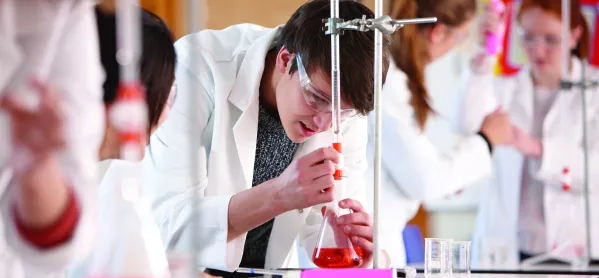“It’s exciting when the answer isn’t at the back of the book, when it hasn’t been confirmed hundreds of times already.” That comment from one student encapsulates what the new Institute for Research in Schools, launched this week, is all about.
I teach physics and, like many science teachers, I love the connection with cutting-edge work: it energises me and fuels my teaching. A large number of teachers are entering the profession with a research background and for them, too, it’s appealing to have a teaching job that connects with research. Together with their students they can experience that “thrill of discovery”, as Professor Sir Leszek Borysiewicz, vice-chancellor of the University of Cambridge and one of the IRIS Trustees, puts it.
I agree wholeheartedly with the past director general of the European Space Agency, Jean-Jacques Dordain, when he says that one of our greatest resources is the brains of our children.
We should not underestimate our young people: they have the capacity to contribute to solving global challenges such as food security, clean water, eradicating disease, energy supply. The institute wants to help them do this by enabling them to contribute at the forefront of science and engineering.
We know more about the surface of the moon than we do about what lies under our oceans and that’s why one of our new areas of work is the marine environment. Here, students can partner with industry and researchers to help analyse data and contribute to the new Marine Protected Areas.
In my dreams, I imagine this huge wealth of enthusiasm, creativity, energy and ideas from young people and their teachers solving some of the world’s problems. And they’re already doing this in areas such as biomedical science and space weather.
Scientists and engineers stand on the shoulders of giants when they drive understanding and innovation forward. I’m sure those shoulders are broad enough to support the curiosity, spirit and insight of young people in our schools.
For more information, click here
Dr Parker teaches physics at Simon Langton Grammar School for Boys in Canterbury


